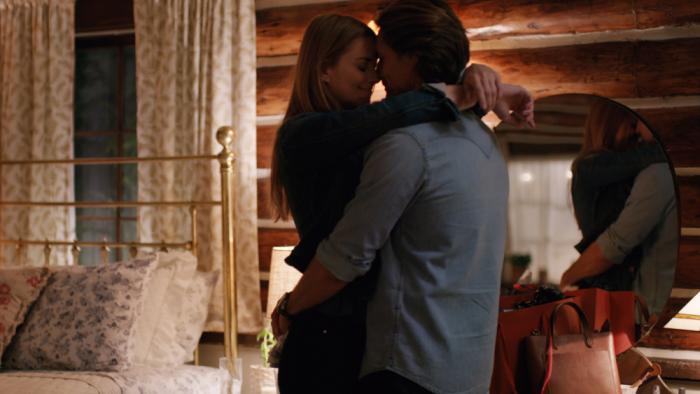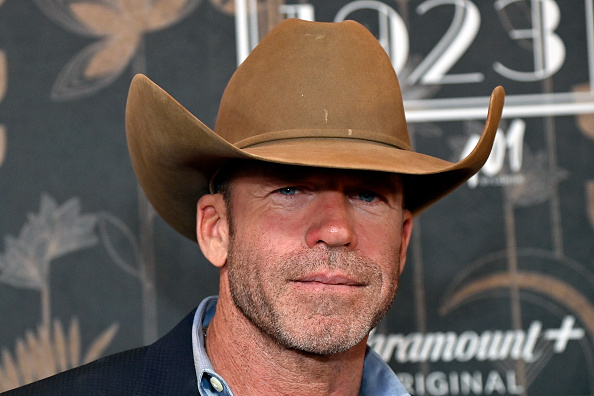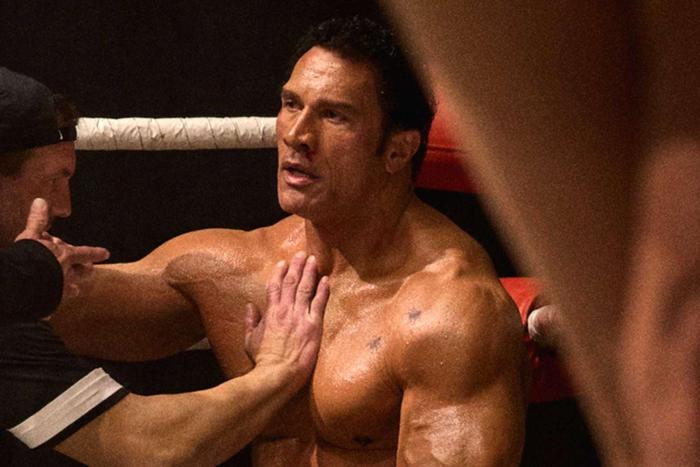
Sex Scenes Can Have a Point. Take 'Virgin River,' For Example
By Alberto Cox Délano | TV | October 27, 2023

It’s the totally sensible, not at all niche and ever-insightful conversation of the moment: Apparently, some people think that nudity and sex scenes in movies and TV are unnecessary and exploitative, used mostly to create titillating press coverage. The surprising thing is that this argument is not coming from people like those fascists roaming from school district to school district to ban books about slavery or Trans people.
No, the backlash against on-screen sexuality has been coming from Gen Z and younger, very online, very progressive, and very media-literate kids. Of course, this conversation has been mired in anecdotal theorizing, posturing among left-wing people, and the online amplification of bad takes. At least that’s what I thought until I saw a recent study that just dropped, providing a more nuanced perspective on how Gen-Zers (in the US at least) feels about sexuality in the media.
Around 50% seemed to agree that considered sex scenes and nudity were unnecessary in most (key word here) shows and movies, but the most interesting takeaway was that they wanted to see more realistic portrayals of their experiences and more depictions of friendship and platonic relationships. So, in simplistic terms, less Euphoria, more Sex Education. I’m very much down for that, and they’re absolutely right that we need to see more types of relationships on screen (hey, how about more intergenerational friendships?). And they’re clearly not puritanically against seeing sex scenes. I do understand where they are coming from in their sense of ick about how sex is depicted in media. One thing that the Me Too movement unearthed is that the filming of sex and nudity has been plagued by exploitation, directors and producers acting sleazy and a lack of respect for the boundaries of the performers. When comes to its justification within the narrative, the reality is that a lot of sex and nudity in media has been gratuitous. I can empathize with the state of mind of those who think the best solution is an “I’d rather not” salting of the land.
But that would mean leaving out a whole chunk of the human experience from media, more than it already has. What Gen Z-ers are probably missing is that we don’t have enough depictions of sexuality in media. Think of it outside of HBO and Netflix, what are we actually getting? Most times, it’ll be a scene where the couple starts kissing and they fumble into the bedroom, the door closing followed by The Couple Having Breakfast the Following Morning or one of them (usually the woman) getting ready to go out, fully dressed.
I needn’t mention that these are straight couples 95% of the time. As if they hadn’t actually boinked, as if whatever happened in between is so private, so obscure that there is nothing sexy about the implication, they might as well have been doing a Satanic ritual. Wait, no, that’s actually sexy. Most mainstream media treats the actual doing of sex as an errand, the boring part you can skip over like the time the characters are actually working or studying in a sitcom’s universe. That’s just as bad as imbuing sex with shame. The end result is a rift in mainstream media, in which most series and movies that actually depict sexuality have to be about The Sex as a core thematic element. Think every erotic thriller ever, 50 Shades and all its copycats, Sex and the City and all its daughters, and so on. On the other side, there’s the media that goes into the Disneyfied opposite. And in between, there is media that is not “about The Sex” that tends to fumble the depiction of sexuality, the worst offender here being Game of Thrones (the consensual one, that is).
I bet even good screenwriters struggle with incorporating sex in an organic way within the narrative; much like the dating scene, male creeps have ruined it for the rest. And yet, if you look hard enough, you will find ways to depict sex, make it organic within the story, and, even better in an industry obsessed with mass appeal, make it PG-13. One of the best examples is in the most nicecore of nicecore shows: Virgin River.
Ok, so I don’t actually watch Virgin River. My mum watches it, and I roll my eyes like a pretentious t**t. But here’s the thing, I don’t need to like Virgin River to respect it. I don’t need to like it to realize that Netflix would be stupid not to let it run for 12 seasons or more; the show doesn’t make money. It’s a mint. I also don’t to like it to believe that, once the SAG-AFTRA strike is over, its cast should demand salaries and kickbacks of at least mid-six figures per episode. I don’t need to like Virgin River to acknowledge when they write in a perfect and lovely sex scene.
The scene in question takes place in episode two of the second season. It involves the (absurdly hot) lead couple Mel (Alexandra Breckenridge) and Jack (Martin Henderson), and it’s LOADED with tensions about to be … resolved. It comes right after they had a huge discussion at his bar because their budding relationship was left on neutral after Jack’s ex Charmaine revealed that she was pregnant with her twins, who were supposedly conceived a little before they met, in that “we-are-about-to-break-up-but-we’re-still-doing-it” phase, though Charmaine clearly wanted to trap Jack and to be fair to Charmaine, Mel was still not in a place to start a new relationship being recently widowed, which is why she came into Virgin River in the first place, and decided to focus on her work with the grumpy Doc, who is separated but still living with Hope, who really wanted for Mel and Jack to get together and held a grudge against Charmaine’s mother, because she had an affair with Doc and there’s also the threat of a drug cartel in the woods that traffics fentanyl and has a chokehold on the marihuana plantations, and Mel and Jack find themselves at the center of that too. Like I said, I don’t watch the show, but at the moment the two finally sleep together, there’s a loaded atmosphere.
Now, the scene is as PG-13 as possible, set to Hozier’s “Movement,” a song that is not as sexy as you might think. It sets the mood for tension, longing, and melancholy. It’s not very long, it is very romantic, very classy and there’s nothing explicit. The series sets Mel and Jack as endgame from the first episode, an endgame that actually makes sense, so the bumps and plot contrivances that keep them apart have to be based on bigger stakes than in a Rachel-Ross situation so that when they actually get together, it has to be a massive moment. One that you cannot omit, skipping straight to the morning after.
The scene must be included because it reflects the character’s state of mind and fits their narrative arc. The writers succeeded because they adapted the old principle of Musicals: “When the words are not enough, you sing, and when singing is not enough, you dance.” And that, I think, should be the principle that could tell you if a sex scene makes sense or if it is just titillating and gratuitous: In the latter, they are like a pointless, cheesy, and shoehorned musical number that comes out of nowhere.
As I mentioned before, there’s nothing explicit about the scene, and Virgin River is clearly not the kind of series that should copy Bridgerton’s formula. But when it comes to nudity, the problem goes even deeper; it starts with the fact that the word “explicit” is associated with it, and it’s mostly a White American Protestant hang-up. In the end, it should all be about what the actors want to show.
Overall, the problem is that if a series as wholesome Virgin River can show you how to depict sexuality, why are discussing this as if the only options were Sam Levinson on one side and Pixar on the other?
Yes, Alberto Cox is just realizing that the Romance Genre has spent decades mastering how to organically incorporate sex scenes in a narrative.



